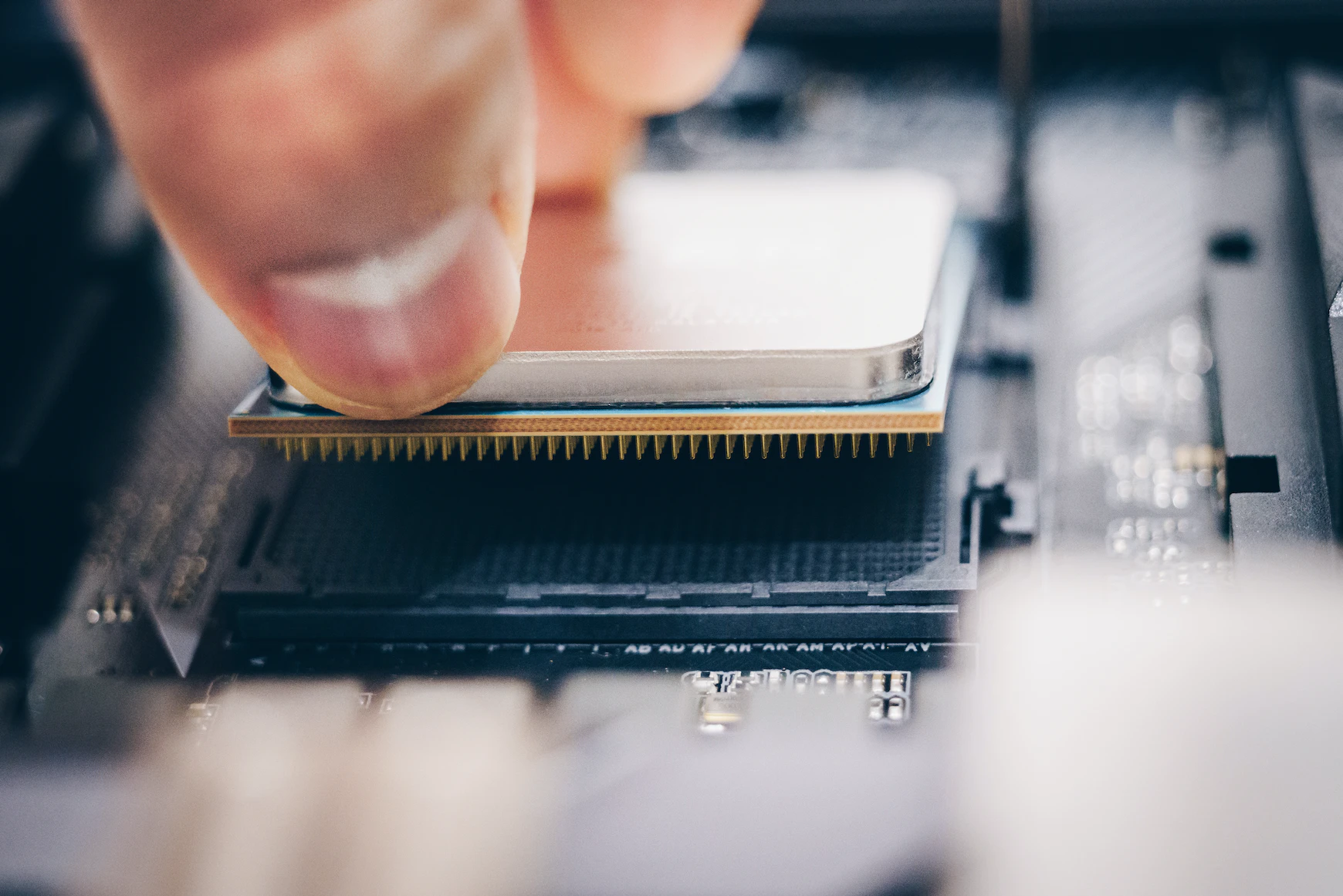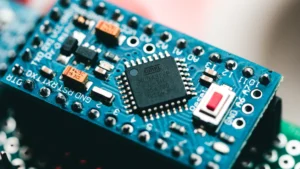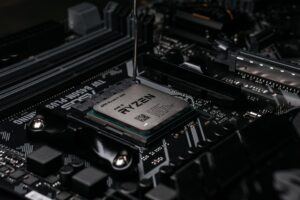The CPU, or central processing unit, is the main processing unit in a computer system and is responsible for executing most of the system’s functions and tasks. It is considered the “brain” of the computer, as it processes and manages all the data that is inputted and outputted.
The purpose of this article is to explore the importance of a CPU for gaming. The article will provide a comprehensive overview of what a CPU is, its functions, and how it impacts the gaming experience. It will also provide insights into factors to consider when choosing a CPU for gaming and performance comparison between different CPU models. By the end of this article, the reader should have a better understanding of the significance of a CPU in the world of gaming.
What is a CPU and its functions?
The CPU consists of various components that work together to process and execute instructions. These components include the control unit (CU), arithmetic logic unit (ALU), and memory cache. The control unit fetches instructions from memory and decodes them, while the arithmetic logic unit performs arithmetic and logical operations. The memory cache is a small and fast memory that stores frequently used data to speed up processing.
The role of a CPU in a computer system
The CPU’s main function is to process and execute instructions. It receives instructions from the operating system and other software, performs calculations and operations, and then outputs the results. The CPU also manages and coordinates the activities of other components within the computer system, such as memory, storage, and input/output devices. Without a CPU, a computer would not be able to perform tasks or execute software.
In short, the CPU acts as the “traffic cop” in a computer system, ensuring that all operations are performed in a logical and efficient manner. It also determines the overall performance of a computer system, as its processing power and speed directly impact how quickly tasks can be completed.
Why is a CPU Important for Gaming?
The Central Processing Unit (CPU) is the brain of a computer and it plays a crucial role in gaming performance. The CPU handles all the calculations and logic necessary for a game to run, from controlling in-game AI to rendering graphics. The speed and efficiency of a CPU directly affect the gaming experience.
In a game, the CPU is responsible for processing the instructions sent by the graphics card, which generates images and video. If the CPU is slow or not powerful enough, the graphics card can be waiting for the CPU to catch up, causing lag or slowdowns. On the other hand, if the CPU is too powerful for the graphics card, the graphics card may be running at less than full capacity, resulting in lower performance.
For high-end gaming, it is recommended to have a CPU with a high clock speed, multiple cores, and high-end architecture. A high clock speed allows the CPU to process information quickly, while multiple cores allow the CPU to handle multiple tasks simultaneously. High-end architecture, such as Intel’s Core i9 or AMD’s Ryzen 9, ensures the CPU can handle demanding games and multitask efficiently.
Importance of a CPU for Gaming
Performance impact on gaming The CPU plays a crucial role in determining the overall performance of a gaming system. A powerful CPU can handle more complex tasks and execute them quickly, resulting in smooth and seamless gameplay. A slower or less powerful CPU, on the other hand, can lead to slowdowns, stutters, and lag, negatively impacting the gaming experience.
How the CPU affects graphics and gameplay
The CPU is responsible for performing various tasks that are essential for a good gaming experience, such as rendering graphics, processing physics simulations, and executing artificial intelligence (AI) routines. In games with advanced graphics, a powerful CPU is required to handle the high demand for processing power, ensuring that the graphics are smoothly rendered and the gameplay is seamless.
CPU impact on other aspects of gaming
The CPU also has an impact on other aspects of gaming, such as loading times. A powerful CPU can process large amounts of data quickly, reducing the time it takes to load levels, assets, and other content. In games that feature complex physics simulations, such as racing or sports games, a fast CPU is required to handle the calculations and ensure that the physics are accurately represented in real-time. Additionally, in games with advanced AI, a powerful CPU is necessary to execute the AI routines, making the game more challenging and dynamic.
In conclusion, the CPU is an essential component of a gaming system, as it determines the overall performance and quality of the gaming experience. Whether it’s smooth graphics, realistic physics, or advanced AI, a powerful CPU is required to deliver an immersive and enjoyable gaming experience.
Factors to consider when choosing a CPU for gaming
Clock Speed
Clock speed, measured in GHz (gigahertz), is a measure of a CPU’s processing power. The higher the clock speed, the more instructions a CPU can process in a given amount of time. When choosing a CPU for gaming, it is important to consider the clock speed, as a higher clock speed will result in better performance and a smoother gaming experience.
Cores and threads
The number of cores and threads in a CPU can also impact gaming performance. Cores refer to the physical processing units within a CPU, while threads refer to the virtual cores that can be processed simultaneously. The more cores and threads a CPU has, the more tasks it can handle at once, resulting in improved performance. When choosing a CPU for gaming, it is important to consider the number of cores and threads, as more cores and threads can lead to improved performance in games that are designed to take advantage of multi-threaded processing.
Overclocking
Overclocking refers to the practice of increasing the clock speed of a CPU beyond its manufacturer-specified limit. Overclocking can result in improved performance, but it can also cause stability issues and reduce the lifespan of the CPU. When choosing a CPU for gaming, it is important to consider the overclocking capabilities of the CPU, as well as the potential risks and benefits associated with overclocking.
Heat management
Heat management is another important factor to consider when choosing a CPU for gaming. High-performance CPUs generate a lot of heat, which can cause stability issues and reduce the lifespan of the CPU. When choosing a CPU for gaming, it is important to consider the heat management capabilities of the CPU, such as the quality of the thermal solution and the cooling options available. A good cooling solution can help ensure that the CPU runs at a stable temperature, improving its performance and longevity.
Recommended CPUs for Gaming
High-end CPUs
For gamers who are looking for the best possible gaming experience, high-end CPUs such as the Intel Core i9 and the AMD Ryzen 9 are recommended. These CPUs offer the highest levels of performance, with fast clock speeds, many cores and threads, and advanced overclocking capabilities. These CPUs are designed for demanding gaming and are ideal for gamers who want to play the latest and most demanding games at the highest settings.
Mid-range
CPUs For gamers who are looking for good performance at a more affordable price, mid-range CPUs such as the Intel Core i5 and the AMD Ryzen 5 are recommended. These CPUs offer solid performance, with moderate clock speeds, a good number of cores and threads, and moderate overclocking capabilities. These CPUs are ideal for gamers who want to play the latest games at decent settings and are budget-conscious.
Budget CPUs
For gamers who are working with a limited budget, budget CPUs such as the Intel Pentium and the AMD A-series are recommended. These CPUs offer basic performance, with low clock speeds, few cores and threads, and limited overclocking capabilities. These CPUs are ideal for gamers who want to play older games or less demanding games at lower settings.
Conclusion
In this article, we have discussed why a CPU is important for gaming. A CPU, or central processing unit, is the heart of a gaming PC, as it is responsible for processing the instructions that make up a game. A good CPU can provide smooth and responsive performance, allowing gamers to enjoy an immersive and enjoyable gaming experience. When choosing a CPU for gaming, it is important to consider factors such as clock speed, cores and threads, overclocking capabilities, heat management, and budget.
CPU technology is constantly evolving, and future advancements are expected to bring even faster and more efficient CPUs to the market. These advancements are likely to result in improved gaming performance, with faster frame rates and more realistic graphics. Additionally, new CPU technologies may bring new and innovative gaming experiences to the table, such as virtual and augmented reality gaming.
Final thoughts and recommendations for gamers
In conclusion, a CPU is a crucial component of a gaming PC, and choosing the right CPU can greatly impact the gaming experience. Gamers can choose from a range of CPUs, ranging from high-end options to budget-friendly alternatives. When choosing a CPU for gaming, it is important to consider factors such as clock speed, cores and threads, overclocking capabilities, heat management, and budget. With the right CPU, gamers can enjoy an immersive and enjoyable gaming experience that provides fast and responsive performance.
Frequently asked questions
Does a better CPU improve gaming?
Yes, a better CPU can improve gaming performance. The central processing unit (CPU) is one of the key components in a gaming system and is responsible for performing complex calculations and processing data. A better CPU can handle more demanding games with more ease and provide smoother, more responsive gameplay.
For example, a higher-end CPU with more cores and a faster clock speed will be better equipped to handle demanding tasks like running multiple applications simultaneously, streaming games and video, and processing large amounts of data in real time. It will also help reduce lag and stutter, providing a more seamless gaming experience.
It’s important to note, however, that a better CPU is not the only factor that determines gaming performance. A good GPU, sufficient memory and storage, and a fast and stable internet connection are also important components of a gaming system.
Does a CPU increase FPS?
Yes, a better CPU can improve gaming performance. The central processing unit (CPU) is one of the key components in a gaming system and is responsible for performing complex calculations and processing data. A better CPU can handle more demanding games with more ease and provide smoother, more responsive gameplay.
For example, a higher-end CPU with more cores and a faster clock speed will be better equipped to handle demanding tasks like running multiple applications simultaneously, streaming games and video, and processing large amounts of data in real-time. It will also help reduce lag and stutter, providing a more seamless gaming experience.
It’s important to note, however, that a better CPU is not the only factor that determines gaming performance. A good GPU, sufficient memory and storage, and a fast and stable internet connection are also important components of a gaming system.



![Why CPU is Considered the Brain of the Computer [Explained!] Why CPU is Considered the Brain of the Computer [Explained!]](https://thebestcpu.com/wp-content/uploads/2023/02/brian-kostiuk-S4jSvcHYcOs-unsplash-300x200.jpg)
